In This Economy
Here is a site for the book (including links to eBooks and audio books)
If you order a signed copy (click here to do that) you’ll get access to:
A Q&A session with me to talk about the book, work, or general economic topics
A sticker package of some of the drawings from the book
A t-shirt with Crying Man Economy
If you pre-order (click here for that list), you will get a Crying Man Economy sticker (this will be a separate form to fill out closer to launch, so save those receipts!)
And, of course, you can enter a giveaway for the book at Goodreads
A Book
A book, In This Economy, is coming out in 11 days (!!!!) I am very grateful and a little nervous. It’s been quite the journey, and I wanted to talk about three things – (1) why I wrote this book and (2) how this book came to be and (3) my favorite articles from the past few weeks.
Thank You’s
First, this book wouldn’t be here without the support of so many people1. Numerous people—from librarians to professors to all of you —believed in me when I didn’t believe in myself. Thank you for being here.
I wrote this book because I wanted it to exist in the world. I hope it serves as a toolbox, a guide to the economy. I think it’s important to understand inflation, the labor market, and the Federal Reserve in the same way that we all know that ‘mitochondria is the powerhouse of the cell.’
Understanding the system that you live in is key to making good decisions in the system. Understanding the economy in all its simplicity and complexity is one of the most important things we can do. When we live in a world that we don’t understand, it gets overwhelming and confusing and noisy and loud. I hope the book cuts through some of that noise, a guide to understanding the soundwaves and shockwaves of our every day.
And now, if it’s okay, a quick story.
A Small Story About Kyla
So it’s 2005. I am 8 years old. My two favorite things are books and a small worm mosh pit I created in the back of a Polly Pocket plane (my mother was none too pleased about my zookeeper attempts). We go to the Middletown Library in Louisville, Kentucky, every week. It is a small, windowless room wall-to-wall with books, and I still don’t think I have ever seen anything so beautiful.
Every week, I picked out about ten books. I read before school, before bed, on the weekends, my face smushed into the side of the pillow as I fell asleep with the light on. Books were my lens to the world - everything I knew, I knew because of books. I would pretend to be the characters, inspired by how brave they seemed (and always wishing I could be just a bit more like them) because I was so painfully shy.
One day, when I was browsing for another novel about a fearless hero and the dragon they slay, a librarian crouched down beside me. We had a quiet friendship, and she would smile at me as I pushed my stack of books over the counter every week.
She had wandered over to me and said, “You could write books like this too, one day!” I stared at her in shocked silence. I nodded a solemn yes. That idea completely changed the course of my life – what did she mean I could do this, too?
The most powerful currency is belief, as goofy as that sounds. That day, she gave me (and countless other kids) a kernel of hope, and that was all I needed.
I wrote a book. The Little Penguin. A short story about a little penguin (aptly named) and his friend, Little Seal, and their battles against the Walrus gang. I wrote another book, Icy and Spicy, about two dueling princesses connected by blood but separated by natural elements. I wrote another, Susanna, several short stories about a girl whose family was divided by the Civil War—another, Everybody Someone, about a girl who just felt like she didn’t belong anywhere (okay, a memoir about ten-year-old me).
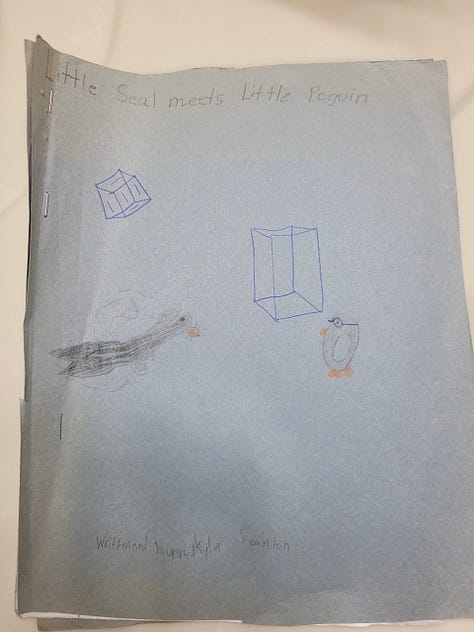
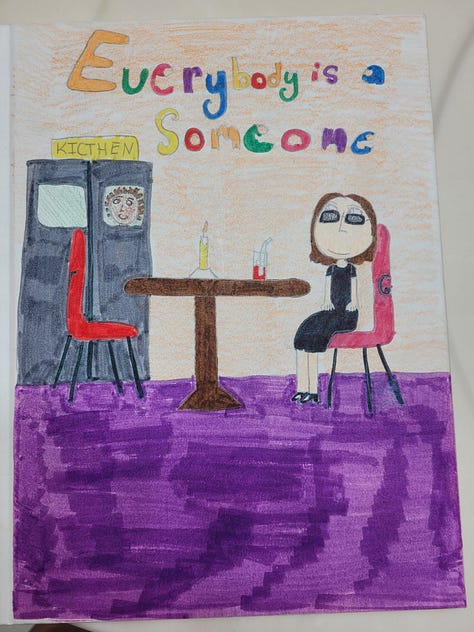
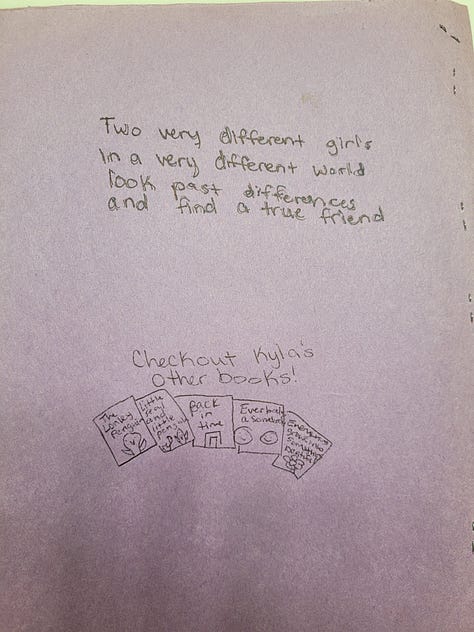

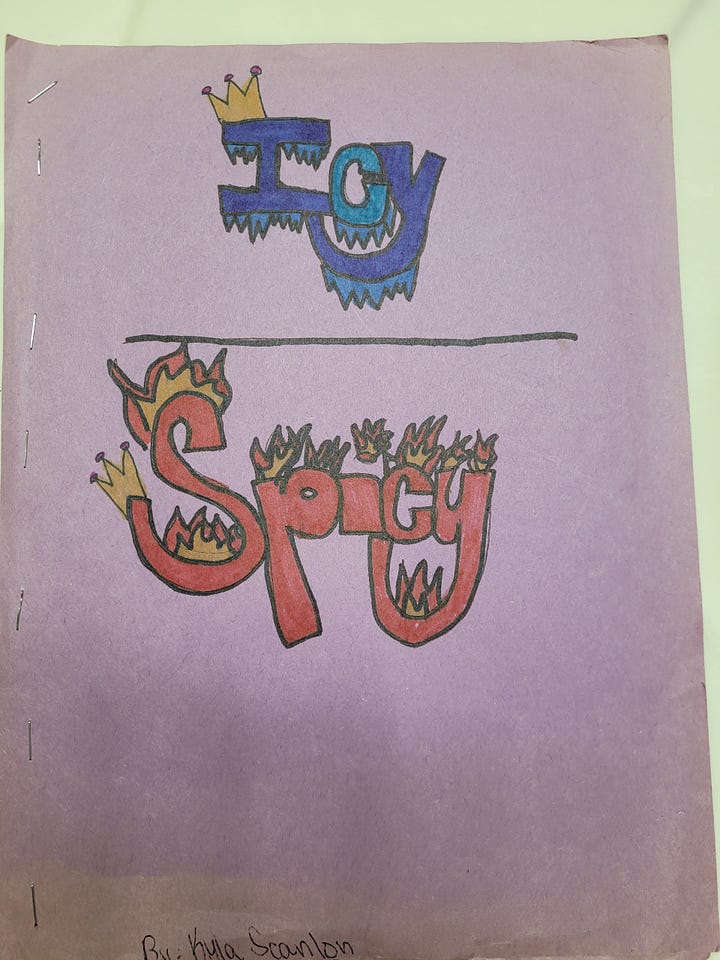
And I wrote and wrote and wrote.
It’s 2015. I kept a blog all throughout college, Scanlon on Stocks, a disastrous account of my options trading journey. I believed that if I was learning about something, I should share my process. So I did, within the world of iron condors, strangles, and delta hedging. My professors supported the various ideas and theories I would throw out (thank you, Dr. Lebedinsky, Dr. Chhachhi, Dr. Carey, and everyone at WKU), and I kept writing.
When I graduated, I moved to Los Angeles to work at Capital Group, fresh as could be. I wrote little market analyses at Capital Group, which Kristen Hemenez, Glen Payne, Jude Vieira, and many more supported me on. Everyone let me try ideas, and that sort of freedom was the best gift.
In 2020, the pandemic hit. I was six months into the job at Capital Group. I was still writing on the blog, now named Scanlon on Stats. I was all alone during the pandemic and had the moment of whatarewedoinghereonEarthwhatamIdoinghereonEarth, so the blog posts got increasingly weirder—Chicken Nugget math, Pizza math, Dating app math—but I kept writing. I think my dad was the only subscriber for a few months (thanks Dad).
In 2021, I made the choice to leave Capital to focus on financial education. I forged out on my own, and I was still writing. Fundamentally terrified at the prospect of failure (zero safety net here; if I fell, it would hurt), I wrote newsletters once a week breaking down the market. I wrote about monetary policy. I wrote about GDP. I wrote about crypto. I wrote about anything that I felt people needed to know about.
There was so much clarity for me in putting the pen to paper and figuring out what I thought about things. I found connections through writing and forging friendships with so many people through the On Deck Writer’s Group (including now some of my best friends, Grant Gregory, Andrew Rea, and Regina Gerbeaux).
So many people took chances on me this year and into 2022, believing in me more than I believed in myself. This list is nowhere near exhaustive, but a few quick shouts - Kai Ryssdal, who has given me so many opportunities to share my thoughts (I remember getting an email from Sean about going on Marketplace, texting my friends and asking if it was spam). Tracy Alloway and Joe Weisenthal, who I’ve learned so much from both in analysis and production - Odd Lots is one of the best finance podcasts ever, and their curiosity about everything has expanded my knowledge of the world. Morgan Housel, who has been so supportive and is one of the most gifted storytellers and kindest people I’ve ever met. Nick Magguilli, who gave me so much book advice and always makes me wish I was better at coding, and Michael Batnick and the entire Ritzholtz team, for showing that finance can be fun and smart. Mary Daly, for being endlessly inspirational in both what can be achieved and how to achieve it, as well as being unbelievably thoughtful. Tom Morgan and Dave Nadig, who have encouraged me to share some of my more esoteric thoughts. Mike Nizza, Tim O’Brien and Jessica Karl for letting me try out some opinions and helping me learn how to shape those. Telis Bertsekas, for letting me come talk at MIT so many moons ago. Derek Thompson, for being always ahead of everything analytical and doing it so concretely. Jim O’Shaughnessy, for being a foundation of the industry and supporting the nascent and new. The Bankless team, for giving me my first job in the creator world. Joey Politano, for being a friend and an incredible economist. Ben Wheeler, for pushing me to try new things. Doug O’Laughlin, Hannah Murray, and Matt Bebb, for the immense care and kindess.
The list is truly endless and I wish I had more words. Thank you so much.
Book Information
Now, there is a book. I am very excited to share it with you. It has 60 illustrations, many charts, some jokes, and, of course, economics. Thank you for being here.
Here is a screenshot of the table of contents
Here is a site for the book (including links to eBooks and audio books)
If you order a signed copy (click here to do that) you’ll get access to:
A Q&A session with me to talk about the book, work, or general economic topics
A sticker package of some of the drawings from the book
A t-shirt with Crying Man Economy
If you pre-order (click here for that list), you will get a Crying Man Economy sticker (this will be a separate form to fill out closer to launch, so save those receipts!)
And, of course, you can enter a giveaway for the book at Goodreads
Some Links
Religious Worship Attendance in America: Evidence from Cellphone Data
Nike’s Failed Attempt at ‘Innovating’ MLB Uniforms Leads to an About-Face
Religious Worship Attendance in America: Evidence from Cellphone Data
Genetic gains underpinning a little-known strawberry Green Revolution
Inside the Funhouse Mirror Factory: How Social Media Distorts Perceptions of Norms
Milan Kundera on the Power of Coincidences and the Musicality of How Chance Composes Our Lives
Cheap Thrills: The Price of Leisure and the Global Decline of Work Hours
Endless thank you’s.

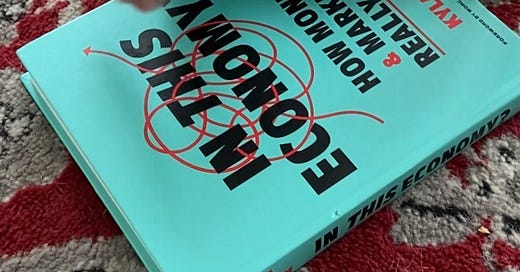



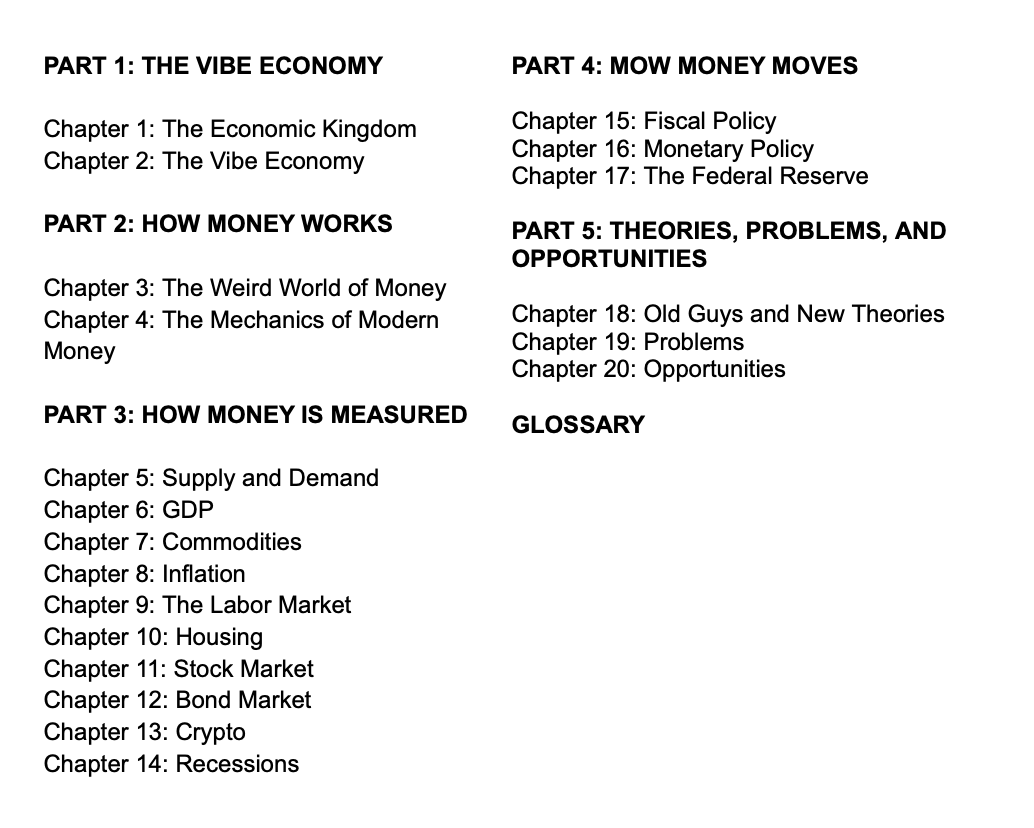
so stoked to read!
i am so excited to get my signed copy and all the goodies. i'm obsessed with the crying person drawing lololol